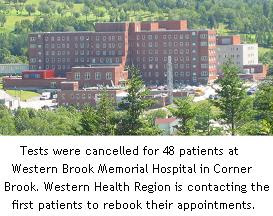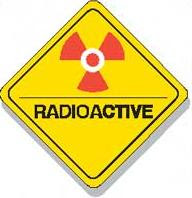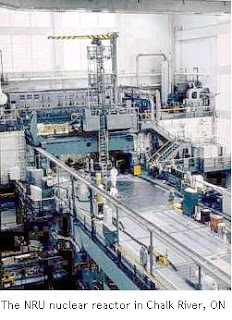 The Commons have decided last night to restart Ontario's Chalk River nuclear reactor and resume the production of medical radioisotopes.
The Commons have decided last night to restart Ontario's Chalk River nuclear reactor and resume the production of medical radioisotopes.
Health Minister Tony Clement said this decision balances safety issues at the plant with the urgent need for the product.
The government introduced emergency legislation last night that will compel the plant to restart operations immediately, at least for 120 days.
Atomic Energy of Canada Ltd. shut down the plant for scheduled maintenance last November. The closure was then extended when serious safety concerns were discovered by the Canadian Nuclear Safety Commission, the federal watchdog for the industry.
Last night's bill allows the plant to restart, but suspends the CNSC's oversight of the Chalk River facility.
"A reasonable decision," according to Clement.
The commission made its decisions based on concerns from scientists and engineers over the system used to cool the reactors, and the possibility of a meltdown in an emergency situation.
But Clement said the government's priority is providing the isotopes to patients who need them.
"In terms of balancing that risk with the risk of cancer patients and heart patients who will not be able to get diagnosis or not be able to get therapy, I think the House of Commons made the right decision and approved the startup of the reactor," Clement told CTV's Canada AM today. (click to see video)
He said the government expects the plant to once again be producing usable isotopes within six to eight days.
The bill still needs to be passed by the Senate, which will likely happen today.
Green Party Leader Elizabeth May called for an inquiry into exactly what took place leading up to last night's decision.
She said Prime Minister Stephen Harper turned the reactor shutdown into a partisan issue and undermined Canada's nuclear regulator.
"Yesterday in the House, he attacked the Canadian Nuclear Safety Commission which is the regulatory body that oversees nuclear safety, referring to them as Liberal appointments and charging the Liberal party was getting in the way of people getting their medical isotopes," May told CTV's Canada AM. (click to see video)
"This was a moment for statesmanship, this is when the prime minister should have called on all parties to work together in the interests of Canadians to protect the supply of radioactive isotopes."
She said the situation sets a dangerous precedent for other Canadian communities that host nuclear reactors.
"These are experts in nuclear safety and the chairperson Linda Keen has now been undercut by the prime minister," May said.
"So the next time Canadians living near a nuclear reactor should be concerned if there's a safety defect in a reactor, AECL is going to thumb their nose at the regulator and know the prime minister is going to come to their defence and blame the regulator?"
The Liberals had threatened to refuse to give the bill the unanimous support necessary to bypass the legislative process.
But all of the political parties eventually agreed to fast-track the legislation through the House and Senate.
MPs passed the vote late Tuesday night, with the NDP and Bloc Quebecois backing it.
The Liberal-dominated Senate, which also agreed to stay late, was expected to put the bill to a vote by early today.
CTV
Editor:
"Isn't this political system just great? Although you might not agree with the decision, at least some real decisions are being made!"
"I wonder though, who's going to pay the bill if there's going to be a meltdown!"
Related articles:
 hospital for three decades.
hospital for three decades.



